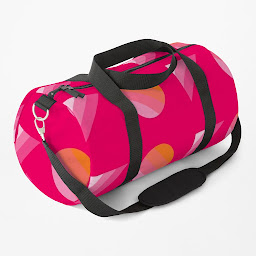If you ever wanted to trade Forex, you may have read up and gained an understanding on how it works but not how to get started. Reading books can give you the knowledge of what Forex trading is but not necessarily what it takes to become a Forex trader.
Here you will find five helpful points to consider and become familiar with to get you started trading Forex.
1. Understanding Forex Trading
You obviously must understand what Forex trading is and how it works. In the least, you need a basic understanding of what is going on, when to buy and sell, what the terms mean, and the various trading strategies available to you. You can get started trading Forex in under a day, but without a plan or knowledge on how it works, you set yourself up to fail.
There are numerous methods to learning Forex trading; you can read books, take online courses, or join a membership community of experts to get real-time answers. But pay attention to the information you consume:
· Be wary of sources that make income claims or say you can quit your day job and never have to work again due to the miracles of Forex. You don't want a gimmick education. Fads don't last as long as real preparedness and strategy.
· Book sources should be recognized authors and experts in the field of Forex. There are plenty of reliable sources; do your research to vet which authors are worth reading.
Online courses offer another avenue for learning Forex trading, but nothing beats experience and the ability to speak with like-minded traders who started out just like you. You can't ask questions or throw ideas at books and online courses hoping for answers or feedback like you can in a global community of Forex traders.
What if there was a place that can help accelerate your learning with its suite of community-backed questions and forum posts, daily live streams where you can get real-time answers, strategies, indicators and trade signals. We have a global community of Forex traders and other learners who have started trading that can give you insight and answers to many Forex questions you might have. Real life people giving hands-on advice can be helpful when you want to find answers right away. We also have a Trade Academy where you can access hundreds of educational Forex videos anytime you want.
2. Strategy Development
You should never start a new financial adventure without a plan. Once you understand the basics and terminologies of Forex, you should make a strategy. A Forex trading strategy outlines what your intents are with your trades: when you will buy or sell and trigger points, for example.
When you first enter Forex trading, you should use the K.I.S.S. (Keep It Simple Stupid) system; do not get overly complex right away. Experience is the best education; get some trading under your belt first. Your strategy should be basic to begin with and can develop into something more complex over time.
There is no perfect strategy; when you develop yours, you must consider this fact and expect some losses but be prepared for them. With experience you will be able to evaluate your strategy and know what has worked in the past in order to adjust it.
The best practice you can learn is backtesting your strategy. Backtesting will not only help you confirm your strategy is worth implementing, but it can also give you the confidence to start with live money sooner.
Demo accounts you can do backtests on, but to get the best use, you must not waiver from your strategy outlines. A demo account is a great place to start because you don't have to risk your own money right away. The downside is people lose interest too quickly because the perceived return is not available; but part of learning is hands-on training. You need to pay attention to price movements and how they play against your strategy. Once you have proven to yourself that your strategy is viable, you can transition into real trading.
3. Get a Broker
When you start trading Forex for real, you need someone to execute the trades on your behalf, or what is known as a broker. There are countless brokers to choose from so you will want to do your research and confirm some information before starting with the first result that appears in your search engine results. Some things to consider:
· Extreme Leverage: Avoid brokers who will offer large percentages of profit returns for your investment; they know the higher margin prospects are more likely to draw you in, but they never tell you how unlikely it is you will ever see those margins. The broker gets his pay, but you end up losing money.
· Commissions: Always know what commission your potential broker expects; some will charge extreme amounts.
· Spread: A decent broker will offer a tight spread; this means the difference between the buying and selling price is low which makes the cost to trade low.
· Location: Depending on location, verify the broker you like is regulated by a certain jurisdiction.
· Customer Service: Your broker is going to be handling large amounts of your money and making trades on your behalf; it is important that they are relatable, available, and reliable. A good broker will provide a speedy deposit and withdrawal when you need it.
4. Low Leverage
Leverage is money you borrow from your broker to increase your trading position. As a beginner, you should start out with a low leverage so you get the experience of a live trade with wins and losses without having to consider what you made overall. It helps you get your feet wet and avoid unnecessarily high risks.
5. Write a Plan
Your work and experience are a waste of time if you don't have a written plan to track, replicate, and alter based on your results. Your plan should include a list of all your trades. You can keep a physical plan or a digital one, but it should be handy.
One challenge I like to encourage beginners to try is the 25 trade challenge. You take your simple strategy and apply it to 25 trades without faltering from your plan. Your strategy should be one that you think is ready to go live; it should include when you are going to buy and sell, when to take profit, when you are stopped, and how to manage risk. Win or lose, you should execute your strategy the same way for 25 trades. Many fail because they deviate from their plan.
One important fact to remember is we all make a losing trade, but it isn't a waste of time or money; the knowledge you gain is worth the loss if you keep your loss prospects low. You should have an understanding as to why it lost so you can adjust for it in later trades. If you quit prematurely or ignore your losses' learning opportunities, you could lose more than you wanted or even should have.
If you struggle with getting started, take each point a step at a time; don't move to the next point until you have built a foundation from the previous step. These are sound strategies that will help you get started with Forex trading.
For a profitable Forex trading journey, subscribe to 1000Pips Builder Forex Signals today; with their independently verified profitable results, you will remain profitable and continue to have a stronghold in the forex market.
Get 1000Pips Builder Forex Signal Here
Other tools for trading the Market:
* 50 High Yield. Dividend Stocks.
Get Instant Access To The 50 Highest Yielding Stocks Sorted By Yield, Dividend Growth, And Return. Click To Get It Now.
* Bots Live Trading Room.
Join The #1 Ranked Live Community Strategy Development Room For Forex, Nadex Options & More. Click To Join Now.



























